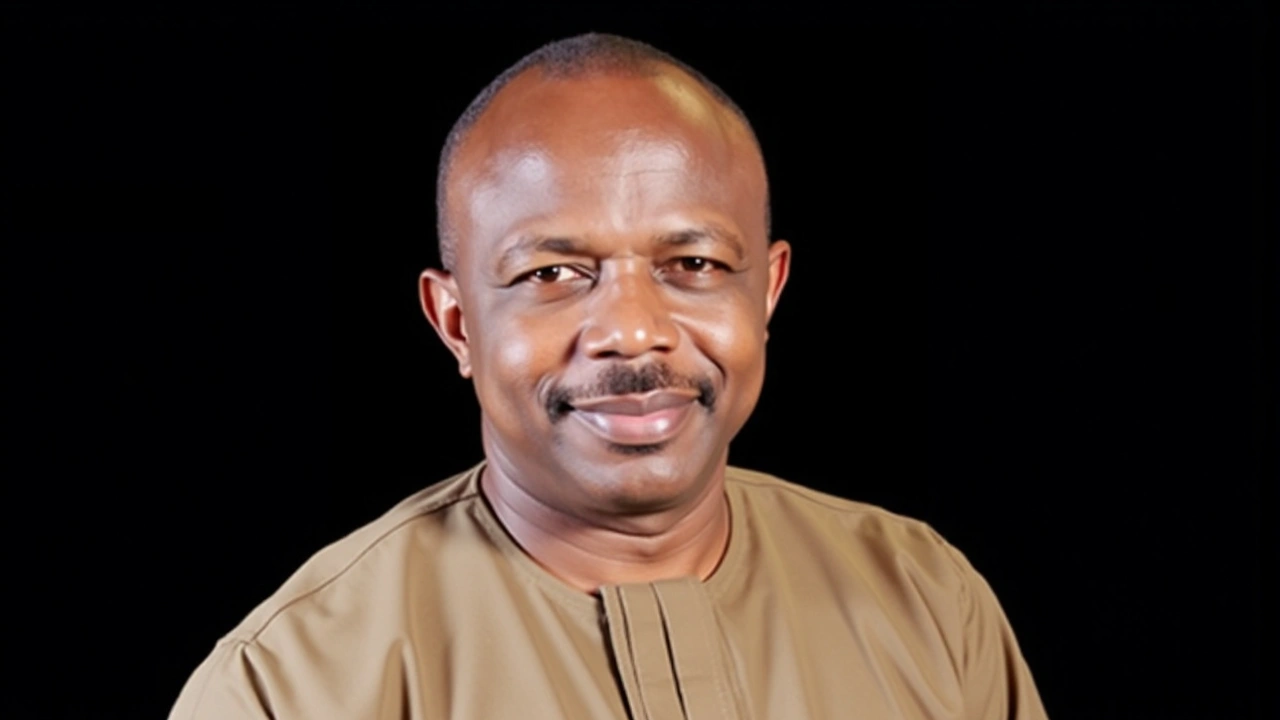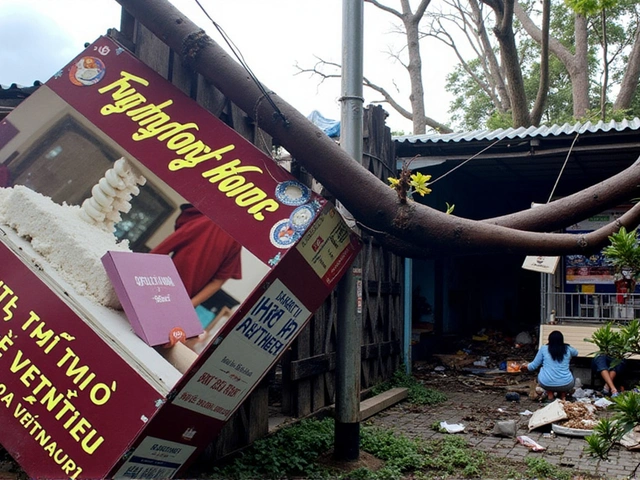Background of Joe Ajaero's Arrest
The Nigeria Labour Congress (NLC), a key institution championing the rights of workers in Nigeria, is currently in turmoil following the unexpected arrest of its President, Joe Ajaero. Ajaero, a prominent advocate for workers' rights, was detained by agents of the Nigerian State while he was en route to the United Kingdom. The incident took place on Monday at the Nnamdi Azikiwe International Airport in Abuja, leaving numerous questions unanswered regarding the legality and motivations behind his detention.
The NLC, an umbrella body for various trade unions in Nigeria, immediately condemned the act, stating that Ajaero was on his way to attend a significant global gathering organized by the Trade Union Congress (TUC) in the UK. At this event, he was scheduled to deliver a crucial address focusing on workers' rights, social justice, and economic fairness—issues that have become increasingly pertinent amidst Nigeria's challenging economic landscape.
NLC's Strong Response and International Appeal
The Nigeria Labour Congress reacted swiftly, describing the arrest as 'unjustified' and 'a brazen act of lawlessness.' According to the NLC, Ajaero was detained without any formal warrant or legal instrument, an action they emphasize as an egregious infringement on human rights. The NLC highlighted that Ajaero is neither a fugitive nor has he been declared wanted by any law enforcement agency, thereby questioning the legal basis for his detention.
In a strongly worded statement, the NLC viewed the arrest as a deliberate attempt to silence dissenting voices and stifle opposition to the government's economic policies. These policies, as per the NLC, have been responsible for increasing hardship and suffering among Nigeria’s working population. Consequently, the NLC has put all its affiliates, state councils, civil society allies, and patriotic Nigerians on high alert, advocating for a concerted response to this act of state intimidation.
Moreover, the NLC has called upon the international community, human rights organizations, and advocates of democracy worldwide to take note of what they perceive as rising authoritarianism within Nigeria. The Congress has demanded the immediate and unconditional release of Joe Ajaero, alongside the liberation of all other Nigerians detained for exercising their democratic rights to protest and express dissent. The NLC's leadership is currently in a closed-door meeting, deliberating on further actions to address this grave situation.
Workers' Rights and Economic Fairness: Ajaero's Mission
Joe Ajaero's intended trip to the UK for the Trade Union Congress meeting was expected to be a significant moment for discussing pertinent issues affecting workers globally. His scheduled address was to cover crucial topics such as workers' rights, social justice, and economic fairness, all of which have been under sustained attack in Nigeria over recent years. This event, now shadowed by his arrest, aimed to foster international solidarity among workers and focus on collaborative strategies to improve working conditions worldwide.
The Nigerian economy has faced tumultuous times, with inflation and unemployment rates soaring. The government's economic policies have sometimes been criticized for exacerbating these issues, leading to widespread discontent among the populace. The labour movement, led by figures like Ajaero, has been at the forefront of advocating for policy changes that would benefit the workforce, aiming to create a more equitable economic landscape.
Implications for Labour Movements in Nigeria
The implications of Ajaero's arrest are profound, casting a shadow not only on the individual but also on the broader movement for labour rights in Nigeria. The arrest has sent ripples through the labour community, raising fears of increased governmental repression and dwindling spaces for free speech and activism. The NLC's strong response underscores the gravity of the situation and its potential consequences on the labour movement and civil liberties in Nigeria.
Furthermore, this incident could hamper efforts to engage with international bodies and forums, which are critical for garnering support and pressing for internal reforms. Ajaero's detention thus highlights the intersection between local struggles for labour rights and the global stage, emphasizing the necessity for sustained international advocacy and solidarity.
The Demand for Justice and Accountability
In the wake of Ajaero's arrest, the call for justice and accountability has never been louder. The NLC's insistence on his immediate release and the termination of unwarranted detentions reflects a broader desire for a more just and democratic society in Nigeria. The labour union's appeal to international bodies is a strategic move to spotlight these issues on a global platform, thereby increasing pressure on the Nigerian government to adhere to democratic principles and respect for human rights.
This incident serves as a reminder of the ongoing struggle for workers' rights and the importance of vigilant advocacy. The NLC's mobilization of its affiliates and partners signifies a strong resistance against any attempts to undermine labour rights and silence dissent. The outcome of this situation will likely set a precedent for future engagements between the labour movement and the Nigerian state, impacting the course of workers' rights advocacy in the country.




It's scary how quickly a peaceful trip can turn into a detention drama. The NLC's reaction shows a real commitment to workers' rights, which is encouraging. Keeping an eye on how the government justifies this move will be crucial. Solidarity from international unions could put pressure on the authorities. I hope the legal process respects basic human dignity.
From an objective standpoint, the state's prerogative to enforce law must be balanced against international norms of due process.
What a mess the whole thing is just shows how corrupt the system is
While the immediate reaction might be frustration, it's important to unpack the layers of this incident with a measured perspective. First, the arrest of a labour leader on a flight destined for a global forum raises red flags about the government's tolerance for dissent. Second, the NLC's swift condemnation indicates that civil society remains vigilant and ready to mobilize when rights are threatened. Third, the international community's potential involvement could serve as a deterrent against arbitrary detentions, especially when the detained individual is scheduled to speak on workers' rights. Fourth, the economic backdrop of soaring inflation and unemployment amplifies the stakes, as workers feel the pinch of policies they deem unfair. Fifth, the symbolism of silencing a voice at an airport-a gateway to the world-cannot be ignored; it sends a chilling message to other activists. Sixth, the legal basis for the detention appears murky, with reports of no warrant, which undermines the rule of law. Seventh, history shows that authoritarian impulses often surface during periods of economic strain, making this episode part of a broader pattern. Eighth, solidarity among Nigerian unions can strengthen internal resistance and present a united front. Ninth, allies abroad, especially those attending the Trade Union Congress, can amplify the narrative and apply diplomatic pressure. Tenth, media coverage, both local and global, plays a crucial role in keeping the issue in the public eye. Eleventh, the government's response to the NLC's appeal will likely set a precedent for future labour disputes. Twelfth, if the authorities choose to release Ajaero promptly, it could restore some confidence in institutional fairness. Thirteenth, a prolonged detention would likely fuel further unrest and potential strikes across key sectors. Fourteenth, the youth population, already restless over economic prospects, may view this as another example of state overreach. Fifteenth, cultivating a culture of dialogue rather than intimidation could pave the way for more constructive policy debates. Finally, regardless of the outcome, this incident underscores the vital importance of defending fundamental freedoms in any thriving democracy.
Honestly, I think the whole uproar is a bit overblown; governments have their reasons, even if we don't agree. The labour movement does love to dramatize every setback into a crisis. Still, a fair process is something we should all demand, not just the union folks.
Well i agree that the govnt has its concerns but still the arbitrairy nature of this detn is doin a bad job for the imge of the country :) It also shows how intresting the intersection of local labour fights and global forums can be. People from other nations can contirbute insights that we might miss. The NLC can use this moment to gain more support on the internatnal stage. Again, just hoping for a speedy release and a clear explanation.
We need to keep the pressure on the authorities and remind them that suppressing lawful activism only fuels further dissent.
Drama unfolds daily this is a prime example
I think the situation highlights how interconnected labour struggles are across borders. When a leader is stopped from speaking on an international stage, it impacts not just Nigeria but also the global conversation on workers' rights. The NLC's call for solidarity is a smart move, as it brings attention from allies who can amplify the message. At the same time, the government might argue security concerns, but without transparency it looks suspicious. Ultimately, the hope is for a transparent legal process that respects both national sovereignty and fundamental freedoms.
Yo, this whole shebang is a perfect cocktail of political theatre and bureaucratic slapdash. The NLC's howl is like a siren in a quiet night, demanding ears from every corner. Meanwhile the state seems to be playing hide‑and‑seek with the rule of law, which is just plain shady. If they don't straighten out this mess pronto, we'll see a cascade of protests that could rattle the very foundations of the regime.